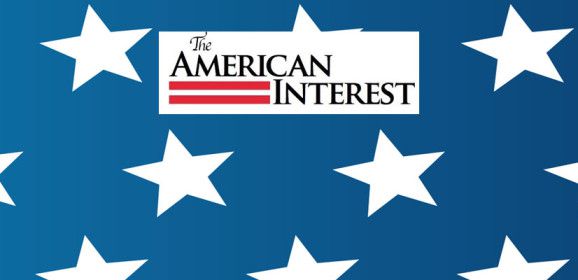Section: The American Interest (USA)
Voices from Afghanistan
“Invisible threads are the strongest ties.” ― Friedrich Nietzsche Nearly a decade ago I sat, together with Catholic philosopher Michael Novak, in the office of the Librarian of Congress, James Billington. Novak had brought us together—he was a longtime friend of Billington—and I was there to pitch an idea. I wanted the Library of Congress to host...
Curzio Malaparte, Mon Amour
I found Curzio Malaparte on my father’s bookshelf, between the volumes on Kosovo and Srebrenica. I was drawn in by the name, Kaputt, and when I turned it over, I was drawn even further in by the cover—the grin of devilish fake teeth floating in darkness on the New York Review Books edition. This was where I found him, and where I quickly...
The Fragility Spectrum
Countries in transition from war or a change in regime have posed repeated challenges to policymakers in recent years—and, repeatedly, the policymakers have come up short. Few have lived up to the expectations of their populations; more often than not, the transitions have stagnated or failed outright. Some countries—including Libya, Yemen, and...
Inside Armenia’s Improbable “Velvet Revolution”
For the first months of 2018, observers of Armenian politics quietly wondered what would happen in April, when the nation was set to officially transition from a presidential to a parliamentary republic. Would Serzh Sargsyan, President since 2008, stay on as Prime Minister? Or would he stand down in favor of someone new? He kept quiet about his...
Armenia’s Crisis of Legitimacy
The resignation of Armenia’s long-time leader Serzh Sargsyan shows that the Armenian political establishment suffers from a crisis of legitimacy. While Armenia’s political environment is likely to get more lively, there is no indication that any political force is ready to tackle the country’s main conundrum: the tight...
Countering a Kleptocratic Kremlin
With every passing week we have new evidence of the threat that Vladimir Putin’s kleptocracy poses to our democracy, our national security, and the entire liberal world order. Putin’s regime—something akin to an organized crime ring masquerading as a state—has looted the wealth of Russia, subjugated its people, attacked neighboring...
“We’ve Now Gotten Putin’s Attention”
On Friday, April 6, the Treasury Department unveiled a new round of sanctions against Russia, blacklisting seven oligarchs and their affiliated companies, along with over a dozen government officials, the state-owned weapons trading company Rosoboroneksport, and its subsidiary bank. The result was a dramatic sell-off across Russian markets that...
The Meaning of “Hard” in Syria
Some decades ago already the phrase “CNN effect” was coined, referring to a concern that the emotional power of pictures might generate such popular sentiment as to overwhelm the calm and careful deliberations of governments during crisis decision points nested in humanitarian debacles. The concern actually predated the name, since CNN set up...
Misdiagnosing the Western Crisis
Disentangling cause and effect is notoriously hard in social and human sciences, and the current crisis of the West is no exception. Is Donald Trump to blame for the erosion of the “liberal international order”? Is Vladimir Putin undermining our democracies? Has the proliferation of fake news and cognitive bubbles on social media amplified the...
Russiagate and the Deep State
I cannot contemplate the havoc of Russiagate without a shudder of horror not only for my country, but also for myself. How very different my life would have been over the past year or more if I had been one of those Trump volunteers assembled in early 2016 to give the campaign the pretense of having a foreign-policy team. For that matter, it...



